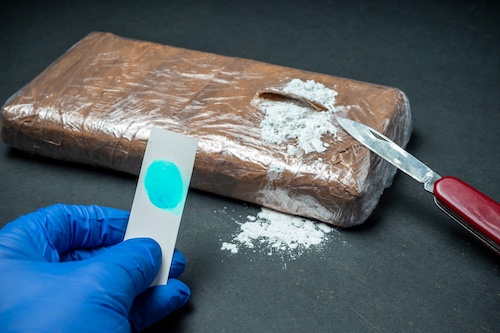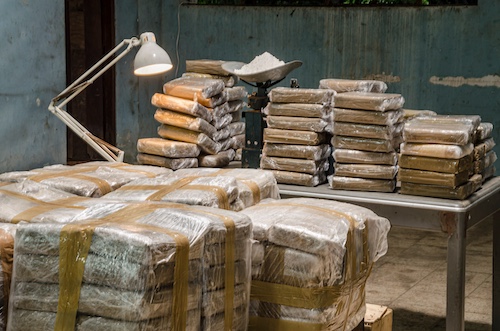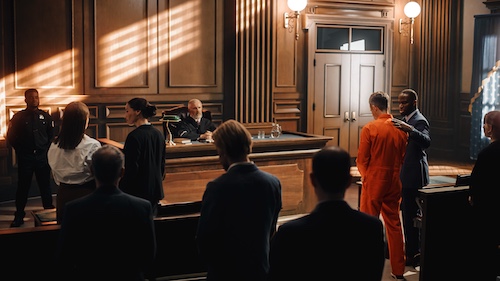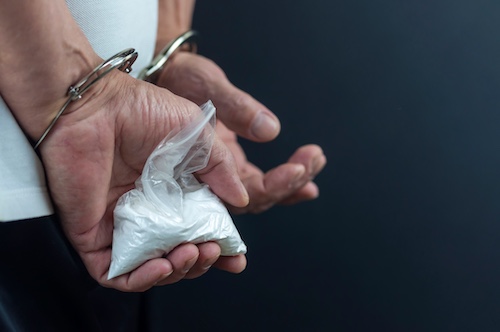Drug trafficking is one of the most aggressively prosecuted federal crimes in the United States, especially in Texas. Federal authorities target individuals involved in the distribution, transport, or sale of illegal drugs, including cocaine, heroin, methamphetamine, and synthetic drugs. These cases often involve large quantities, organized crime groups, or trafficking routes tied to Mexican cartels and international networks. The penalties are severe, and federal law enforcement agencies move quickly.
In this blog, you’ll learn how federal drug trafficking cases are investigated, prosecuted, and sentenced, and why working with an experienced Woodlands federal crimes lawyer is essential if you are facing these serious charges.
What Constitutes Drug Trafficking Under Federal Law?
Drug trafficking is one of the most serious federal crimes in the United States. It involves the illegal handling of controlled substances with the intent to distribute or sell.
Definition of Drug Trafficking
Federal law defines drug trafficking as the manufacture, distribution, or possession with intent to distribute illegal drugs. This includes substances like cocaine, heroin, methamphetamine, marijuana, crack cocaine, and synthetic drugs. The law applies to both natural and synthetic narcotics involved in the illicit drug trade.
Under 21 U.S.C. § 841, it is a federal offense to knowingly or intentionally distribute or manufacture a controlled substance. The law also covers attempts and conspiracies to commit these acts. This statute forms the basis for many federal prosecutions involving organized crime groups, drug cartels, and cross-border trafficking routes.
Activities Considered Trafficking
Drug trafficking offenses go beyond simple possession. The federal government prosecutes cases involving large quantities of drugs, distribution networks, and connections to organized crime. Common activities related to trafficking include:
- Importing drugs from source countries like South America or transit countries in Central America
- Distributing drugs across state lines or within the United States market
- Manufacturing controlled substances for sale or export
- Using transport routes linked to Mexican drug cartels or other international crime groups
These actions often trigger involvement from the Drug Enforcement Administration (DEA) and other law enforcement agencies.
Scale and Intent
Possession becomes trafficking when law enforcement identifies an intent to sell, distribute, or move the drugs. This is usually based on the quantity found, packaging materials, communications, or cash. A person caught with large quantities or items used for drug sales may be charged with trafficking.
Federal prosecutors do not need to prove an actual sale. They only need to prove the intent to distribute illegal drugs. The burden of evidence often includes testimony from law enforcement officials, surveillance, and forensic data.
Controlled Substance Classification
The government classifies drugs into five schedules under the Controlled Substances Act. Schedule I drugs like heroin and cannabis carry the harshest penalties, while lower schedules include substances with limited medical use. Drug traffickers handling Schedule I or II substances face more severe sentences if convicted.
When Drug Offenses Become Federal Crimes
Not all drug crimes fall under federal jurisdiction. Certain conditions must be met for drug offenses to become federal crimes instead of state matters.
Crossing State or National Borders
Drug trafficking becomes a federal offense when the activity crosses state lines or involves international trafficking routes. If drugs are moved from one state to another or brought into the United States from countries like Mexico, Colombia, or others in Central and South America, federal law enforcement agencies such as the DEA or FBI may take control of the case.
This includes shipments through major transit points and trafficking routes linked to Mexican drug cartels and other organized crime groups involved in the global illicit trade involving illegal drugs.
Involvement of Federal Law Enforcement
If a federal agency arrests a suspect or leads the investigation, the case is typically prosecuted at the federal level. Agencies such as the Drug Enforcement Administration, Homeland Security, and Customs and Border Protection focus on large-scale drug trafficking offenses. These cases often include operations involving multiple states, foreign nationals, or illicit activities with ties to international markets.
Federal jurisdiction may also apply if the drug offenses happen on federal property or involve undercover federal agents.
Large Quantities and Distribution Networks
Possessing or distributing large quantities of controlled substances can trigger federal charges. The federal government focuses on drug traffickers who operate distribution rings, manufacture drugs, or move large shipments of cocaine, methamphetamine, heroin, and synthetic drugs.
Even if the activity occurs within one state, the scale of the operation can still qualify it for federal prosecution. Federal courts target individuals tied to organized crime groups, drug cartels, or other networks involved in high-volume drug sales.
Use of Weapons or Prior Convictions
Federal prosecutors often file charges when a drug crime involves firearms or violence. If the accused has a prior criminal history or is connected to organized crime, the case may escalate to federal court. These factors increase the severity of the charge and potential penalties.
A criminal record, especially for prior drug offenses, increases the chance that the government will view the individual as a repeat offender and pursue a federal case.
Federal Interest in Organized Crime
Federal authorities actively pursue drug traffickers connected to corruption, violence, and organized crime networks. If an individual is linked to operations run by Mexican cartels or other high-risk crime groups, the case becomes a priority for federal prosecution.
The federal government uses these cases to disrupt large-scale illicit drug trade operations and dismantle trafficking routes into the United States market.
Federal Drug Trafficking Prosecution Process
Federal prosecution for drug trafficking follows a strict process. Each stage is controlled by federal rules and procedures.
Investigation and Surveillance
Federal cases often begin with long-term investigations. Law enforcement agencies such as the Drug Enforcement Administration, FBI, and ATF use tools like wiretaps, surveillance, and informants. These investigations target organized crime groups, drug traffickers, and networks involved in the illicit drug trade.
Agents may monitor shipments from source countries, track communications, or infiltrate groups linked to Mexican cartels. Evidence collected during this phase forms the foundation of the case.
Arrest and Criminal Charges
Once agents gather enough evidence, they arrest suspects and file charges. These arrests can involve one person or many, depending on the size of the trafficking operation. If the crime includes large quantities of illegal drugs or involves weapons, the charges are more serious.
The government usually charges suspects for drug trafficking offenses. Additional charges may apply for conspiracy, money laundering, or gun violations.
Indictment by Grand Jury
Federal drug cases move forward through a grand jury process. The grand jury reviews the evidence and decides whether to issue an indictment. If indicted, the defendant must face trial in a United States District Court. Many Texas cases are filed in the Western District, a region known for high drug trafficking activity.
This step begins formal prosecution under the supervision of the U.S. Attorney’s Office.
Pretrial Hearings and Detention
After indictment, the court holds pretrial hearings. The judge decides if the defendant will stay in custody or be released on bail. Drug trafficking suspects often remain in detention, especially when charged with distributing cocaine, methamphetamine, or heroin in large amounts.
Pretrial motions may challenge the legality of the investigation or how evidence was obtained. A strong defense at this stage is critical.
Trial and Sentencing
At trial, the government must prove beyond a reasonable doubt that the defendant committed the offense. Prosecutors present physical evidence, witness testimony, and reports from law enforcement officials. Defendants may present a defense or challenge the evidence.
If found guilty, the court uses guidelines from the United States Sentencing Commission to determine penalties. Sentences depend on drug type, quantity, use of weapons, and prior convictions.
Penalties for Federal Drug Trafficking Offenses
Federal drug trafficking penalties are severe. Sentences depend on the type of drug, the amount, and the defendant’s history.
Mandatory Minimum Sentences
Federal law sets mandatory minimum sentences for many drug trafficking offenses. Penalties increase based on drug type and quantity. For example, trafficking 500 grams of cocaine can bring a five-year minimum sentence. Larger amounts lead to ten years or more.
These laws apply to cocaine trafficking, methamphetamine, heroin, and other illicit drugs tied to the drug trade. Judges must follow the minimum terms unless specific exceptions apply.
Factors That Increase Penalties
Several factors can lead to longer prison terms. Use of a firearm during a drug offense adds years to the sentence. Causing serious injury or death by selling tainted or powerful drugs, such as synthetic drugs or crack cocaine, results in enhanced punishment.
Repeat offenders with a prior criminal history face longer sentences. Defendants connected to organized crime groups, drug cartels, or large-scale distribution networks may also receive higher penalties.
Drug Type and Quantity
The type and quantity of drugs play a central role in sentencing. Trafficking smaller amounts of marijuana results in lighter sentences than large-scale operations involving methamphetamine or fentanyl. The government tracks large quantities linked to Mexican cartels, transit countries, and source countries.
Each substance is assigned a schedule under the Controlled Substances Act. Schedule I and II drugs carry the harshest penalties. These include heroin, cocaine, and methamphetamine.
Federal Sentencing Guidelines
The United States Sentencing Commission issues guidelines used by judges during sentencing. These guidelines consider:
- Drug amount
- Role in the offense
- Use of violence or weapons
- Criminal record
Although judges have some discretion, they often follow the sentencing ranges set by the guidelines. These ranges help ensure consistent penalties for drug trafficking offenses across the country.
Federal sentences usually include long prison terms without parole. Convicted drug traffickers may also face fines, asset forfeiture, and supervised release after prison.
Contact an Experienced Federal Crimes Attorney Today!
If you or someone you care about is under investigation or has been charged with federal drug trafficking, you need a legal team that understands the system and acts fast. These cases move quickly, and the penalties can change your life forever. Our team at Cowboy Law Group has the experience and focus to take on the federal government and fight for your future.
Contact us at 832-326-2932 for a free case consultation today!







